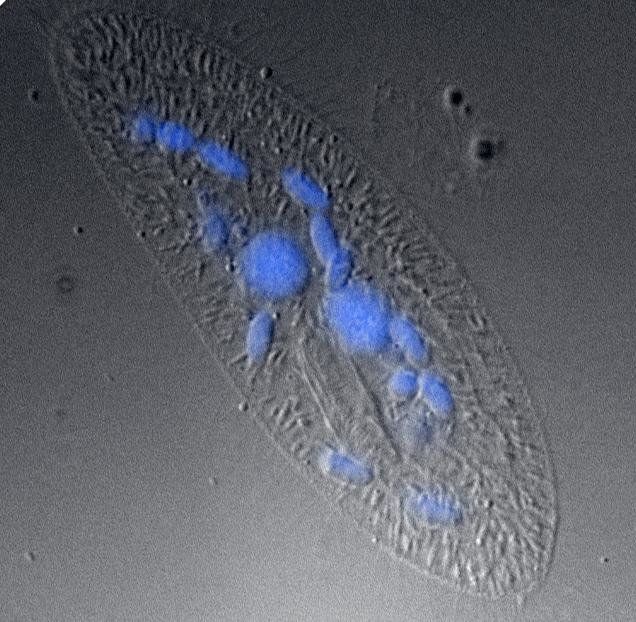Scientists have discovered a new family of molecules that work together to precisely remove unwanted DNA during reproduction in single-celled, freshwater organisms called ciliates.
The discovery of these new molecules has profound implications for our understanding of the mechanism of gene removal (or ‘excision’) and rearrangement which plays a crucial role in the development and evolution of many species. The findings are published in eLife.
Transposons are pieces of DNA that move around in the genome, transported by enzymes called transposases that bind to them. As transposons jump around during evolution, host organisms can acquire the genes they carry and use them to gain new functions in a process known as domestication.
